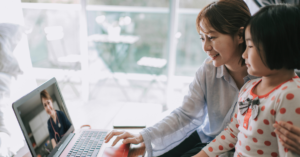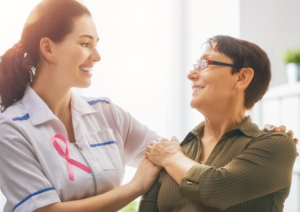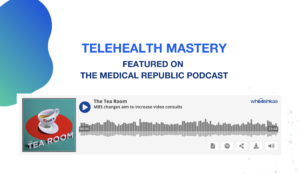
Telehealth becoming a mainstream GP service
Few GPs had used telehealth before COVID hit. Then the world changed. And the funding did too. And now, telehealth is here to stay.

RACGP and ACRRM accredited telehealth course
Proponents for digital transformation say remote consults could assist patients and doctors, but only if the right settings are in place.
————
Telehealth advocates are calling for greater funding certainty for digital services and infrastructure that they say could improve healthcare across the country.
Following the Federal Government’s commitment to extend Medicare-funded telehealth another six months to December, Telehealth Mastery virtual training educator Dr Gillian Alexis told newsGP the biggest challenge to greater take up from GPs was the lack of long-term confidence.
‘The problem with telehealth at the moment with GPs is the uncertainty,’ she said.
‘That is very much the reason why there has been pick up of phone only, and not video [calls]. Doctors don’t feel certain around whether it’s going to stay and in what form.’
Medicare-backed telehealth was introduced at the height of COVID-19 concerns last year and immediately proved popular with patients.
Almost one in two GP consultations between July 2020 and March this year used the medium; however, only 1.5% of these consultations were carried out using video.
To date, telehealth funding has been rolled out progressively, with quarterly or half-yearly extensions. Last year, Federal Health Minister Greg Hunt committed to ‘universal, whole-of population telehealth’ on an ongoing basis, and the RACGP has since advocated for temporary extensions to allow more time to properly set up a permanent solution.
Melbourne-based GP Dr Andrew Baird is an enthusiastic supporter of continued use of telehealth.
‘For patients, they save time and money [and] avoid the need to travel,’ he told newsGP.
‘It’s convenient and many patients say they feel more at ease at home rather than in a clinic situation.
‘There’s certainly improved access for telehealth to general practice for some patients, particularly disadvantaged groups.’
Minister Hunt said the latest extension, until 31 December, will allow time for peak bodies to help shape a permanent system, but it also resulted in RACGP concerns about the phasing out of longer mental health phone consults from the end of June.
The move is expected to disproportionately affect women and vulnerable patients, and placed more emphasis on the need to better support GPs to be able to offer video-based consultations, through both infrastructure and training.
‘Until you’ve got the hardware and software, you’re not going to be able to do it,’ Dr Alexis said.
‘And with the investment that GPs need to make, they’re not going to do that if it’s not going to be permanent.’
She says there is greater potential for telehealth than its current utilisation, including the integration of monitoring tools and servicing regional practices remotely.
‘These are things that [GPs] need to be trained on,’ she said.
Aside from helping patients, Dr Baird says telehealth also benefits doctors, who can split their time and work from home, use less personal protective equipment, and travel less.
He prefers video consultations for the communication benefits – being able to see gestures, expressions and examinations – but says there was little impetus to introduce and implement telehealth systems prior to the pandemic, so services still need to catch up.
‘The fundamental has been the lack of drive from government and from funding,’ he says. ‘There was an acceptance that the status quo was good enough so why bother.’
Dr Alexis, who offers a program designed to educate GPs on telehealth, believes digital services can eventually help drive a change in primary care to further support personal wellness instead of treatment, via shorter, regular check-ins from doctors based on data-driven insights.
She is also calling for telehealth training to be available for student medical professionals and recently arrived international doctors so they are confident with the systems.
‘Many GPs have seen the benefits of telehealth, and want to help meet growing patient demand, but lack the skills, knowledge and confidence needed to extend their virtual telehealth offering within their clinic,’ she said.
‘We need to look at education as an investment. Better health monitoring, reminders and prevention measures could save the government millions in future health bills.’
Telehealth Mastery, a program designed to educate GPs on the technology, billing, marketing and implementation across clinics, has been accredited by the RACGP (CPD) and the ACRRM to provide the training for GPs. Its foundational course offers 40 CPD points.
ORIGINAL SOURCE: https://www1.racgp.org.au/newsgp/professional/telehealth-advocates-say-clinics-need-certainty-to


Few GPs had used telehealth before COVID hit. Then the world changed. And the funding did too. And now, telehealth is here to stay.

Telehealth Mastery equips GPs to manage often-overlooked aspects of telehealth including risk mitigation, insurance, integrated

New short activity: Combining genetic and clinical risk models for better, proactive breast health. Telehealth

Podcast interview: MBS changes aim to increase video consultations Dr Gillian Alexis, RACGP Educator, CEO

Telehealth Mastery was featured in newsGP today. Full article below. Telehealth advocates say clinics need